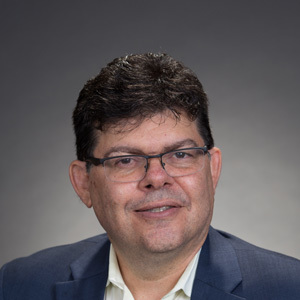Scholar Studies Latin America Christianities
October 29, 2019 | Academics, Faculty, History & Ecumenics, International, Multicultural Relations, Public, Religion & Society, Students, Theology

Born and raised in Brazil, Raimundo C. Barreto, Jr., Princeton Theological Seminary assistant professor of World Christianity, experienced the vibrant religious communities of Latin America firsthand. Brazil is home to the largest Catholic population in the world, the dynamic liberationist and Charismatic Catholic movements, a vibrant Pentecostal boom, and multifaceted Afro-Brazilian and indigenous religions. But, during his doctoral studies, Barreto realized that much of the scholarship he encountered was Eurocentric, assuming a reality mostly informed by secularization. “As I entered academia, I needed to make sense of this contrast,” Barreto says. “Secularization theories could not explain the effervescently religious experiences seen in places like Africa, Asia, and Latin America.”
Today, Barreto’s research focuses mainly on religious experiences originated outside Europe and North America, and their diasporic expressions. More specifically, his research centers on varied Latin America Christian movements, and the social, economic, and cultural conditions that shape them, including indigenous spirituality and world views. Drawing on liberationist and decolonial approaches, he has been interested in the epistemological shifts taking place in the study of Latin American religions, more particularly what Latin American scholars have called “otros saberes” or “knowledge otherwise,” a concept that he believes to fit quite well within World Christianity, a field that values a range of interdisciplinary contributions.

At Princeton Seminary, Barreto teaches a variety of courses on World Christianity and ecumenism, in conversation with liberationist, decolonial, and intercultural theologies. He also teams up with fellow faculty members to take students abroad. In January 2019, Barreto and colleague Afe Adogame brought 18 students to South Africa for a 12-day travel study course. In January 2020, they’ll travel to Brazil. “These courses become a life-changing experience for students, challenging unexamined assumptions in unimagined ways, and opening new windows for the way they see and experience the world,” Barreto says. This on-site study of World Christianity helps achieve one of his primary pedagogical aspirations for his students, which is that they gain new tools for interpreting and experiencing reality, step outside their comfort zone, and “expand their perspectives, so they can interact with others — particularly those who are different from them — in a more open, inclusive, and respectful manner.”





